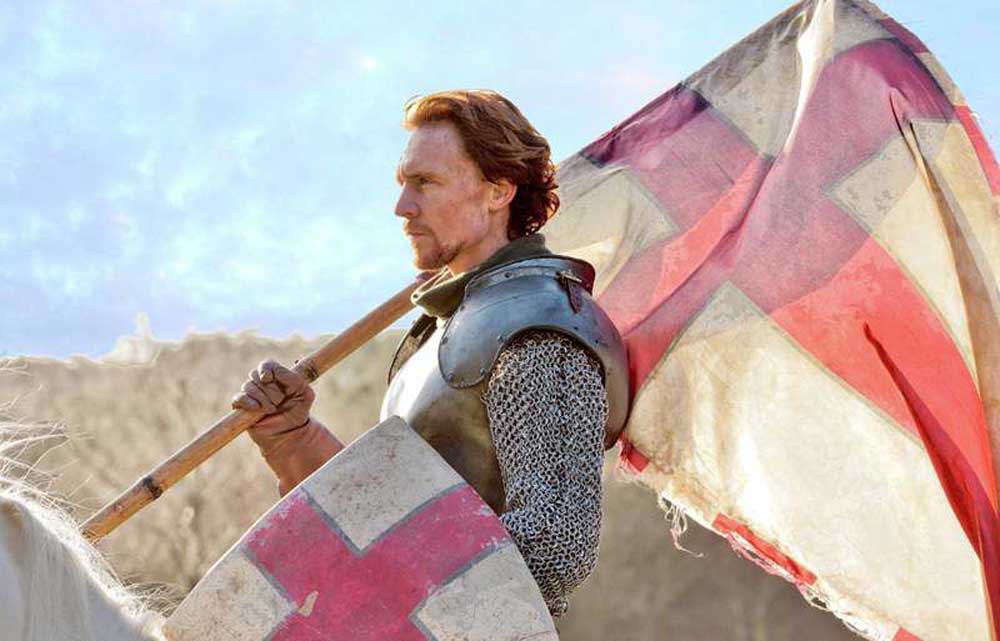Hiddleston relishes role as Henry V
Published 5:00 am Thursday, October 10, 2013

- Tom Hiddleston plays Henry V in PBS' “Great Performances” presentation of Shakespeare's “Henry V” as part of its “The Hollow Crown” series, which airs Sunday.
“Great Performances: The Hollow Crown” 12-2:30 p.m. Sunday, PBS
BEVERLY HILLS, Calif. — It’s not every actor who can portray the same Shakespearean character in two different ways. But British thespian Tom Hiddleston can. He plays the shallow Prince Hal in two of the Bard’s “king” plays that have been airing on PBS’ “Great Performances” series “The Hollow Crown.”
But this weekend he becomes the besieged King of England — Henry V — and finds himself charged with the battle of a lifetime, the fate of a nation in his hands.
No small task for the actor most Americans remember as the evil villain Loki in both “Thor” and “The Avengers.”
“Prince Hal is an archetype of what, I think, possibly every young man goes through,” Hiddleston said at a press gathering here.
“To test his limits and push boundaries and reject the authority of his father and live in a way that he was not supposed to and has been discouraged from doing. And (he) slowly goes on a journey of accepting responsibility and embracing his inheritance. And I think that rings true of so many great characters in all drama and all history … you see a young man growing up,” he says.
At the beginning Prince Hal seems a rebel without a cause. “He starts out rebellious, drunk, mischievous, wayward and youthful. And then he becomes the greatest warrior king that England has ever had,” Hiddleston said.
“And I think there is a through-line and the reason he becomes such a great warrior and is such a great king is probably because of the experience he had as a young man, in my mind.”
Because of production schedules, they filmed the four plays in reverse. “Henry V,” airing Sunday, is chronologically the last, but was the first to be shot. Hiddleston had to “age backward” for the part.
On his very first day of filming he was forced to grasp the gravity of young Henry’s situation poised on the battlefield facing the French at impossible odds. That’s where the famous speech: “Once more into the breach …” is delivered.
Hiddleston explains, “When Henry V is besieging a French castle, they’re on a military mission, and his men make a breach, a hole in the castle wall. But it isn’t complete. And then the French army comes tearing out of this hole in the castle, and the English run away. And Henry’s response is ‘Once more unto the breach, dear friends, once more; or close the wall up with our English dead.’ And it becomes the most extraordinary motivational speech that’s better than any locker-room speech you’ve ever heard in any movie about American football,” he says.
Henry continues to rally his troops, says Hiddleston. “He says, ‘In peace there’s nothing so becomes a man as modest stillness and humility; but when the blast of war blows in our ears, then imitate the action of the tiger. Stiffen the sinews.’ And he’s basically saying, ‘Unleash the beast.’
“And I think it doesn’t matter whether you’re English or American or Brazilian or Japanese, I think that sentiment of courage and a collective kind of steeling yourself to overcome an insurmountable obstacle is something that connects to anyone on this planet if they have a beating heart. And that’s why I think these plays are so extraordinary.”
Hiddleston first heard of Shakespeare from his English teacher when he was 10 years old. “He just made us learn stuff. We didn’t understand it. That was our homework was to go away and learn great passages of ‘Macbeth’ and ‘Much Ado about Nothing’ and ‘Hamlet.’ And it was only later that I realized that, somewhere deep in the recesses of my kind of early brain, I have all this stuff which has started to make sense.”
His first Shakespearean role was in the fairly obscure “Timon of Athens.” Hiddleston was 14 years old and played Timon’s 65-year-old manservant with a gray wig, gray beard and a pocket watch. Though he’s 32, he has never forgotten those lines.
But it was seeing production of “Twelfth Night” that convinced him Shakespeare was accessible even to an adolescent boy. “It was the most beautiful, rich, dazzling, hilarious, touching production. And that’s when I think I began to understand that Shakespeare must be spoken as a contemporary language. It cannot be speechified. It cannot. There’s no point in making it operatic … we’ve all inherited an English language which really comes from Shakespeare. And when you speak it like you’re making it up, it’s so shockingly, it’s so shockingly modern, it so speaks to you. And I love that.”






